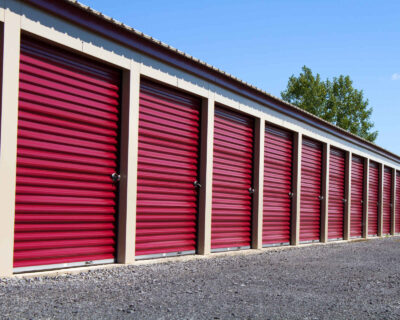How Much Does It Cost to Move Across the Country? A Detailed Expenses Breakdown
Moving across the country is an exciting yet challenging task that requires careful planning and financial consideration – understanding the costs associated with such a relocation is crucial for a smooth transition. So, how much does it cost to move across country? In this comprehensive guide, we will delve into the various expenses involved in relocating across the country, providing you with a detailed breakdown to help you budget effectively and make informed decisions throughout the journey.

How Much Does It Cost to Move Across Country on Average?
When wondering how much does it cost to move to another state, there are many things to take into consideration. The average cost of cross-country relocation can vary widely depending on several factors, such as the relocation distance, the size of your household, the time of year, and the specific services you require. While it’s challenging to provide an exact figure, a vague estimate suggests that a cross-country move can cost up to several thousand dollars.
This range encompasses various cross-country moving expenses, including packing material costs, rental truck prices, potential storage unit fees, and the choice between full-service movers and self-service options. Keep in mind that additional factors like special handling fees for fragile items, temporary housing or lodging costs, and travel expenses during relocation can further contribute to the overall cost.
To get a more accurate estimate for the specific situation, it’s advisable to obtain moving company quotes and utilize moving cost calculators while also exploring discounts and deals for relocation services to help you stay within the relocation budget. Here’s a table that shows the average cost of relocating a two-bedroom home.
| Distance and route | Cost of the move |
|---|---|
| East Coast to West Coast | $4,000 - $11,000 |
| South East Coast to West Coast | $5,000 - $10,000 |
| East Coast to South East Coast | $3,000 - $9,000 |
| North East Coast to South East Coast | $3,000 - $9,000 |
Factors Influencing Cross-Country Moving Costs
When it comes to estimating the cost of a cross-country relocation, several key factors come into play. Understanding these factors is crucial for effective relocation budgeting and making informed decisions.
Distance of the Relocation
One of the primary factors influencing cross-country relocation costs is the distance you need to cover. It’s a straightforward concept – longer moves generally cost more. As you traverse greater distances, you’ll incur higher fuel expenses for long-distance moves, potentially require more days of travel, and may even need to obtain interstate moving permits. Therefore, it’s essential to consider the geographical span of the relocation when budgeting, as it can significantly impact the overall cost.
Volume of Belongings
Another critical factor is the volume of belongings you’re taking with you. The quantity and size of items being moved play a substantial role in determining the expenses. If you have a large household with numerous furniture pieces and possessions, you’ll likely need a larger moving truck or more storage space, both of which will increase the costs. To manage this factor effectively, consider decluttering before moving and only taking essential items to your new home, as this can help reduce both the physical volume and associated expenses.
Time of Year
The time of year you choose to relocate can also significantly impact the costs. Moving during peak seasons, which typically coincide with summer months, holidays, and school breaks, can be pricier. During these periods, relocation companies tend to charge higher peak moving season rates due to increased demand. If possible, consider scheduling the relocation during off-peak times to secure more favorable rates and alleviate the financial burden of the relocation.

The Main Cost Components
When assessing the main cost components of the relocation, it’s essential to break down the expenses into categories. Understanding these components will help you make informed decisions and create a more accurate relocation budget.
Moving Company Fees
One of the most significant cost components of any cross-country relocation is the fees charged by the relocation company you choose. There are two primary options to consider – full-service movers vs. self-service, each with its pros and cons.
Full-service movers handle virtually every aspect of the move, from packing services and loading to transportation and unloading at the destination. While this option offers convenience and reduced relocation stress, it tends to be more expensive. However, it can save you valuable time and energy.
Self-service movers, on the other hand, allow you to pack and load belongings yourself while the company takes care of transportation. This option can be more cost-effective but requires greater effort on your part. Considerations for self-service movers include the size of the relocation, your ability to handle heavy lifting, and potential savings.
Packing Materials
Another essential cost component is different packing materials. This includes items such as boxes, bubble wrap, packing tape, and specialized containers for fragile or oddly shaped items. Purchasing new packing materials can add up quickly, so it’s wise to explore cost-saving options, such as using recycled or second-hand materials. Many people find success in collecting free relocation boxes from local businesses, friends who have recently moved, or on sites like Craigslist.
Additional Services
When wondering how much does it cost to move cross-country, you have to take into account additional moving services charges. A relocation and car shipping company offers a range of additional long-distance moving services that can impact the overall cost. These services may include packing assistance, disassembly and reassembly of furniture, and special handling for fragile or valuable items. A reliable auto transport company can also help you transport your car. While these services can increase expenses, they can also save you time and effort, making them worth considering based on your individual needs and budget.
Insurance for Belongings
Protecting belongings during a relocation is essential, and moving insurance costs are an important factor to consider. Most companies provide basic coverage, but it’s important to understand the limitations of this coverage. You may also opt for Full Value Protection, which offers more comprehensive coverage but comes at an additional cost.
Additionally, purchasing third-party insurance can provide extra peace of mind by covering potential damages or losses that exceed the relocation company’s coverage. It’s crucial to carefully evaluate all insurance options and factor them into the overall relocation expenses.
There Can Be Some Unexpected or Hidden Costs
Cross-country moves can come with a range of unexpected or hidden costs that extend beyond the initial budget. Two significant contributors to these unforeseen expenses are last-minute changes or delays and gratuities for cross-country movers.
Last-Minute Changes or Delays
Cross-country moves often involve meticulous planning, but unforeseen circumstances can disrupt even the most well-organized relocation. Last-minute changes or delays are common challenges that can have a substantial financial impact on the relocation.
Whether it’s due to inclement weather, unexpected road closures, or logistical hiccups, these disruptions may lead to extra expenses such as extended hotel stays, increased fuel costs resulting from detours, and even rescheduling fees for services like utility connections. To safeguard the budget from these unforeseen circumstances, it’s advisable to set aside a contingency fund.
Gratuities for Movers
While tipping the movers is not a mandatory expense, it is a customary practice that reflects the appreciation for their hard work and dedication. The amount you tip can vary depending on several factors, including the size and complexity of the relocation, the quality of service provided, and the overall satisfaction.
Tipping movers is not just a financial consideration but also a gesture of gratitude for a job well done. Be sure to factor gratuities into the budget so that you’re prepared to acknowledge the efforts of the long-distance movers, especially if they go above and beyond to ensure a smooth and efficient relocation for you.

Money-Saving Tips
When it comes to cross-country moves, finding ways to save money can significantly ease the financial burden. Here are some valuable relocation tips to help you keep expenses in check.
Decluttering Before the Move
Decluttering before a relocation is a financially savvy strategy. Take the opportunity to assess your belongings and decide what you truly need in a new home. The fewer items you transport, the lower the costs will be.
Consider selling items you no longer use or need, which can not only lighten the load but also put some extra cash in your pocket. Additionally, donating or recycling items is an eco-friendly way to reduce waste and potentially earn tax deductions. By decluttering, you not only save on expenses but also start a new life with a more streamlined and organized home. Watch this video if you need more tips on decluttering.
Comparing Multiple Moving Company Quotes
One of the most effective ways to save money is to compare multiple long-distance moving company quotes. Don’t settle for the first estimate you receive. Reach out to several companies and request detailed quotes that outline their services and pricing.
By comparing these quotes, you can identify the most cost-effective option that aligns with your specific needs and budget. Be sure to scrutinize the services offered in each quote and inquire about any potential discounts or deals for relocation services. Taking the time to research and compare quotes can lead to substantial savings while ensuring you receive quality service.
Auto-Transport
If your first concern is having your vehicle transported safely and efficiently, enclose shipping is the way to go.
Read moreStorage Service
Knowing what kind of surprises cross country move may hold, we offer 30 day free storage for belongings at the origin state.
Read morePacking Services
Our moving teams are trained to pack your belongings in the most efficient manner possible.
Read moreUsing Flexible Moving Dates
Flexibility with the relocation dates can be a valuable cost-saving tactic. If possible, consider adjusting move-in and move-out dates to take advantage of lower rates. Peak relocation seasons, typically during the summer and around holidays, often come with higher costs due to increased demand. In contrast, relocating during the off-peak periods can result in more favorable pricing from moving companies.
Additionally, you may find it easier to secure discounts on accommodations and other services during less congested times. By being adaptable with moving dates, you can optimize the budget and potentially reduce overall relocation expenses.

Good Budgeting Is Key to Successful Moves
In the journey towards a cross-country relocation, understanding and implementing money-saving tips can make a substantial difference in overall expenses. Remember that every dollar saved contributes to a more comfortable and financially secure start in a new life. And remember the best tip of all – hire professional movers. It’s the only expense you will never regret. So, contact us at Flat Price Auto Transport and Moving company and allow our expert team of movers to provide you with a smooth and stress-free relocation.
FAQ
How Much Money Should I Have to Move Across the Country?
The amount of money you should have to relocate across the country varies widely depending on several factors, including the relocation distance, the household size, the services you require, and the personal financial situation. On average, a cross-country relocation can cost several thousand dollars, encompassing expenses such as hiring a relocation company, transportation, packing materials, insurance, and other associated costs.
It’s advisable to create a detailed budget that accounts for all potential expenses and includes a contingency fund for unexpected costs. To get a more accurate estimate, obtain quotes from moving companies, factor in travel expenses, and consider cost-saving strategies like decluttering and comparing quotes.
How Do I Move Across the Country by Myself?
Relocating across the country by yourself can be a challenging but manageable endeavor with proper planning. Here are some steps to consider:
- Plan ahead – Create a detailed relocation plan, including a timeline and checklist,
- Packing – Pack efficiently, using quality packing materials,
- Rent a truck – Hire a rental truck or van that suits your needs and budget,
- Loading and unloading – Enlist help from friends or hire labor for loading and unloading belongings,
- Travel arrangements – Plan a travel route, accommodations, and meals along the way,
- Utilities and address changes – Ensure utilities are set up at your new home and update the address with relevant entities,
- Budget wisely – Keep a close eye on expenses and have a financial cushion for unexpected costs,
- Safety first – Prioritize safety during the relocation, especially if you’re driving long distances.
How Do You Calculate Relocation Costs?
Calculating relocation costs involves considering various factors such as distance, the size of the relocation, relocation services required, packing materials, insurance, and additional expenses. Here’s a general process:
- Create a comprehensive list of expenses, including hiring a relocation company or renting a truck, packing supplies, travel costs, and temporary housing.
- Obtain quotes from relocation companies to get a better idea of service costs.
- Factor in additional expenses like insurance, gratuities, and unforeseen costs.
- Use a relocation cost calculator to estimate costs based on specific details.
- Adjust the budget as needed to accommodate all expenses.
How Hard Is It to Move Across the Country?
Relocating across the country can be a challenging process, but the difficulty level depends on various factors. These include the distance of the relocation, the amount of belongings you have, the budget, and the level of preparedness. Long-distance moves require careful planning and time management and often involve logistical challenges.
However, with thorough planning, research, and organization, you can mitigate difficulties and ensure a smoother transition. Many people successfully relocate across the country each year, and the experience can be an exciting opportunity for a fresh start in a new location.









